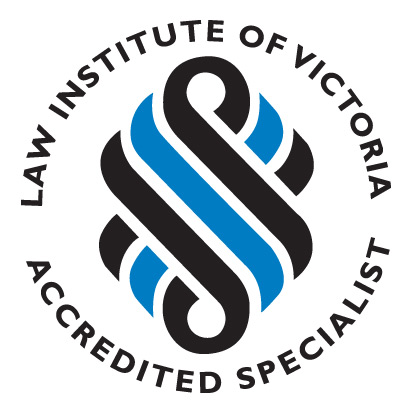
By Jordyn Nichols, Lawyer
What is an Informal Will?
An informal will is a document that sets out a person’s testamentary intentions but does not satisfy the legal requirements of execution under Section 7 of the Wills Act 1997 (Vic). There are a number of reasons why someone may choose to write their own will, including: reduced cost, immediate need, personal circumstances, time and convenience.

Whilst legislation varies between states, in Victoria, a will is not valid unless it meets the following requirements:
- It is in writing and signed by the will maker or by some other person, in the presence of, and at the direction of the will maker;
- The signature is made with the will makers intention of executing a will;
- The will maker signed the will in the presence of two or more witnesses present at the same time;
- At least two of the witnesses attest and sign the will in the presence of the will maker.
While drafting your own will may seem like an easier and cheaper option, there are a number of common problems associated with informal wills.
Problems with Informal Wills
1. Ambiguity

Ambiguous or confusing wording in a will can create problems when it comes to interpreting your final wishes. While you may believe your will’s instructions are clear and straightforward, any ambiguity or unclear language will likely lead to the Court having to determine the meaning. This process can be protracted and expensive for the estate, causing delays and additional legal expenses.
Instances in which the language of a Will might lack clarity, certainty, or exhibit ambiguous language include:
- The will makers intention cannot be clearly identified;
- It is unclear who certain beneficiaries are;
- There are no clear residuary beneficiaries;
- The will does not adequately dispose of all the will maker’s assets, leading to a partial intestacy; and
- Ambiguous and broad terms are used throughout the will.
2. The Will is Not Executed or Witnessed Correctly

Many people are not aware of the legal requirements that need to be satisfied in order for a will to be valid. If your will has not been executed correctly, your appointed executor will encounter significant issues, delays and costs when trying to admit your purported will to the Court for a Grant of Probate.
If your will is not executed in accordance with the formal requirements, then the will can be admitted to probate as an ‘informal will’. However, there is no guarantee that the Court will accept the document as your intended last will. If the will is not accepted, the court can request that a penultimate will be admitted to probate or, if there is no penultimate will, that your estate be distributed in accordance with the laws of intestacy.
3. Mental Capacity and Undue Influence
An informal will can be challenged based on the grounds that the will maker did not have testamentary capacity at the time of executing their will or was unduly influenced. In cases where your will is contested based on any of those reasons, there is often a lack of evidence to demonstrate that you possessed the required mental capacity or that you were not subjected to undue influence when you created your will.
Having your will prepared by a lawyer will make it easier to defend against these types of challenges. Typically, lawyers maintain detailed file notes and, when necessary, may have documented evidence of your mental capacity from a treating physician on file.

4. Revocation and Amendments
From time to time, you may find it necessary to make amendments to your will. While making handwritten changes directly on your original will may seem convenient, it is not recommended, as it can lead to legal disputes and potential challenges.
Similarly, if a will maker fails to include a revocation clause in their will and there are multiple wills in existence, it can lead to confusion and legal disputes regarding which will takes precedence. This is why it’s crucial, when creating a new will, to work with an experienced lawyer who can ensure that all necessary provisions, including revocation clauses, are included to avoid any ambiguity or uncertainty regarding your wishes.
How City Pacific Lawyers Can Help
The best way to avoid writing an informal will and potentially burdening your loved ones with costly and unwanted legal fees and disputes, is to seek legal advice from an experience wills and estates lawyer.
At City Pacific Lawyers, we offer a complimentary estate planning consultation to all new clients, where our experienced lawyers will guide you through the process, taking the time to understand your unique circumstances and creating a tailored estate plan that reflects your wishes.
If you or someone you know wants more information or needs help or advice regarding estate planning, please contact us on (03) 9592 3356 or email office@citypacific.com.au or fill in the web contact form here:
Contact


